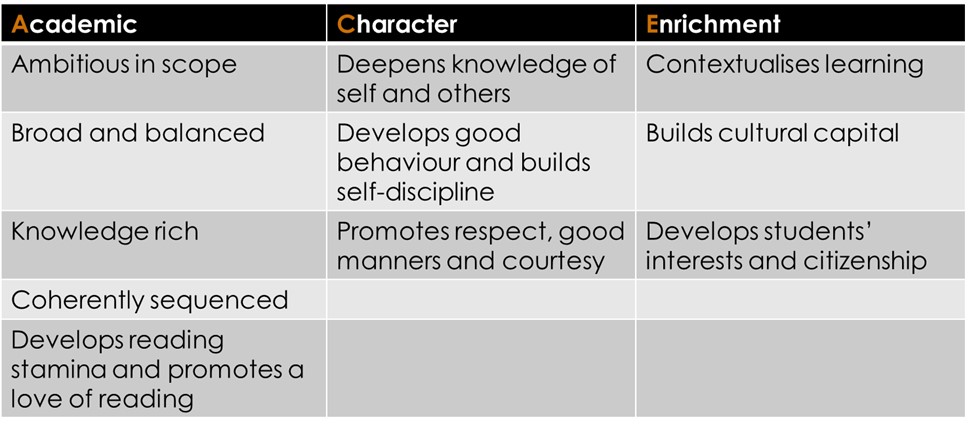Curriculum
The aim of our curriculum is to give every student the confidence and character to live a life of choice and opportunity.
At Bodmin College the curriculum includes three dimensions that we define as an ACE curriculum, shown in the graphic below:

Key Stage 3 Academic Curriculum.
Key Stage 3 Curriculum Overview
Curriculum Overview for Year 7
Knowledge Organiser for Year 7 (Cycle 3)
Curriculum Overview for Year 8
Knowledge Organiser for Year 8 (Cycle 3)
Curriculum Overview for Year 9
Knowledge Organiser for Year 9 (Cycle 3)
Options
Key Stage 4 Academic Curriculum.
Key Stage 4 Curriculum Overview
Curriculum Overview for Year 10
Knowledge Organiser for Year 10 (Cycle 3)
Curriculum Overview for Year 11
Key Stage 5 Academic Curriculum.
Key Stage 5 Curriculum Overview

A Learning Community That Puts You First
Through collaboration, we develop creativity and talent, forming partnerships that generate sustainable transformative success in our communities. We do this by offering a mixture of A level, T Level courses delivered across multiple campuses throughout Cornwall. Our lecturers are focused on aligning the very latest curriculum with the needs and aspirations of local industry experts and employers. We champion creative, ambitious thinking that follows the interests of our students.
Visit WebsiteExtra and Other Curriculum.
PSHE
Sex and Relationships Education Policy
Careers
Extra-curricular Clubs and Activities
Music Development Plan
Knowledge Organisers Archive
Knowledge Organiser for Year 7 (Cycle 2)
Knowledge Organiser for Year 7 (Cycle 1)
Knowledge Organiser for Year 8 (Cycle 2)
Knowledge Organiser for Year 8 (Cycle 1)
Knowledge Organiser for Year 9 (Cycle 2)
Knowledge Organiser for Year 9 (Cycle 1)
Knowledge Organiser for Year 10 (Cycle 2)
Knowledge Organiser for Year 10 (Cycle 2)